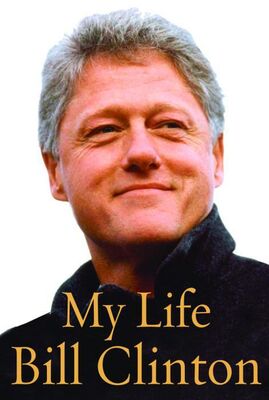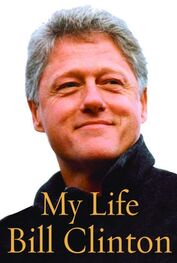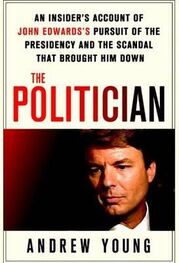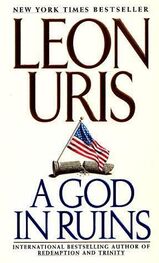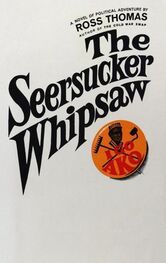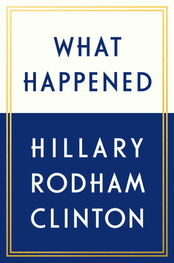The next night, after a day working on last-minute business, I gave a brief farewell address to the nation from the Oval Office. After thanking the American people for giving me the chance to serve and briefly summarizing my philosophy and record, I offered three observations about the future, saying that we should stay on the path to fiscal responsibility; that our security and prosperity required us to lead in the fight for prosperity and freedom and against terrorism, organized crime, narco-trafficking, the spread of deadly weapons, environmental degradation, disease, and global poverty; and finally, that we must continue to “weave the threads of our coat of many colors into the fabric of one America.”
I wished President-elect Bush and his family well and said I would “leave the presidency more idealistic, more full of hope than the day I arrived, and more confident than ever that America’s best days lie ahead.”
On the nineteenth, my last full day as President, I issued a statement on land mines, saying that since 1993 the United States had destroyed more than 3.3 million of our own land mines, spent $500 million to remove land mines in thirty-five countries, and was making a vigorous effort to find a sensible alternative to mines that would protect our troops as well. I asked the new administration to continue our global demining effort for ten more years.
When I got back to the residence it was late and we still weren’t completely packed. There were boxes everywhere, and I still had to decide which clothes were going where—to New York, Washington, or Arkansas. Hillary and I didn’t want to sleep; we just wanted to keep strolling from room to room. We felt as honored to be living in the White House on our last night as we had when we came home after our first inaugural balls. I never ceased to be thrilled by it all. It seemed almost unbelievable that it had been our home for eight years; now it was almost over.
I went back into the Lincoln Bedroom, read Lincoln’s handwritten copy of the Gettysburg Address one last time, and stared at the lithograph of him signing the Emancipation Proclamation, on the very spot where I was standing. I went into the Queen’s Room and thought of Winston Churchill spending three weeks there in the difficult days of World War II. I sat behind the Treaty Table in my office looking at the empty bookshelves and bare walls, thinking of all the meetings and calls I’d had in that room on Northern Ireland, the Middle East, Russia, Korea, and domestic struggles. And it was in this room where I read my Bible and books and letters, and prayed for strength and guidance all through 1998. Earlier in the day I had pre-recorded my final radio address, to be aired not long before I was to leave the White House for the inaugural ceremony. In it I thanked the White House staff, the residence staff, the Secret Service, the cabinet, and Al Gore for all they had done to make my service possible. And I kept my promise to work until the last hour of the last day, releasing another $100 million to fund more police officers; those new police had helped give America the lowest crime rate in a quarter century. Well past midnight, I went back to the Oval Office again to clean up, pack, and answer a few letters. As I sat alone at the desk, I thought about all that had happened during the last eight years, and how quickly it would be over. Soon I would observe the transfer of power and take my leave. Hillary, Chelsea, and I would board Air Force One for a last flight with the fine crew that had taken us to the far corners of the world; our closest staff members; my new Secret Service detail; some of the career military staff such as Glen Maes, the navy steward who baked all my specially decorated birthday cakes, and Glenn Powell, the air force sergeant who made sure our luggage never got lost; and a few of the folks who “brought me to the dance”—the Jordans, the McAuliffes, the McLartys, and Harry Thomason. Several members of the press corps were also scheduled to make the last trip. One of them, Mark Knoller of CBS Radio, had covered me all eight years and had conducted one of the many wrap-up interviews I had done in the past several weeks. Mark had asked me if I was afraid that “the best part of your life is over.” I said I had enjoyed every part of my life and that in each stage I had been “absorbed, interested, and found something useful to do.”
I was looking forward to my new life, to building my library, doing public service work through my foundation, supporting Hillary, and having more time for reading, golf, music, and unhurried travel. I knew I would enjoy myself and believed that if I stayed healthy I could still do a lot of good. But Mark Knoller had hit a soft spot with his question. I was going to miss my old job. I had loved being President, even on the bad days.
I thought about the note to President Bush I would write and leave behind in the Oval Office, just as his father had done for me eight years earlier. I wanted to be gracious and encouraging, as George Bush had been to me. Soon George W. Bush would be President of all the people, and I wished him well. I had paid close attention to what Bush and Cheney had said in the campaign. I knew they saw the world very differently from the way I did and would want to undo much of what I had done, especially on economic policy and the environment. I thought that they would pass their big tax cut and that before long we would be back to the big deficits of the 1980s, and in spite of Bush’s encouraging comments on education and AmeriCorps, he would feel pressure to cut back on all domestic spending, including education, child care, after-school programs, police on the streets, innovative research, and the environment. But those were not my calls to make anymore.
I thought that the international partnerships that we had developed in the aftermath of the Cold War could be strained by the more unilateral approach of the Republicans—they were opposed to the test ban treaty, the climate change treaty, the ABM Treaty, and the International Criminal Court. I had watched the Washington Republicans for eight years and imagined that President Bush would, from the outset of his term, be under pressure to abandon compassionate conservatism by the more rightwing leaders and interest groups now in control of his party. They believed in their way as deeply as I believed in mine, but I thought the evidence, and the weight of history, favored our side. I couldn’t control what happened to my policies and programs; few things are permanent in politics. Nor could I affect the early judgments on my so-called legacy. The history of America’s move from the end of the Cold War to the millennium would be written and rewritten over and over. The only thing that mattered to me about my presidency was whether I had done a good job for the American people in a new and very different era of global interdependence.
Had I helped to form a “more perfect union” by widening the circle of opportunity, deepening the meaning of freedom, and strengthening the bonds of community? I had certainly tried to make America the twenty-first century’s leading force for peace and prosperity, freedom and security. I had tried to put a more human face on globalization by urging other nations to join us in building a more integrated world of shared responsibilities, shared benefits, and shared values; and I had tried to lead America through its transition into this new era with a sense of hope and optimism about what we could do, and a sober sense of what the new forces of destruction could do to us. Finally, I had tried to build a new progressive politics rooted in new ideas and old values, and to support like-minded movements around the world. No matter how many of my specific initiatives the new administration and its congressional majority might undo, I believed that if we were on the right side of history, the direction I had taken into the new millennium would eventually prevail.
Читать дальше